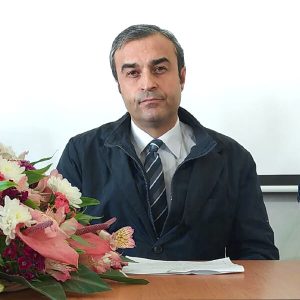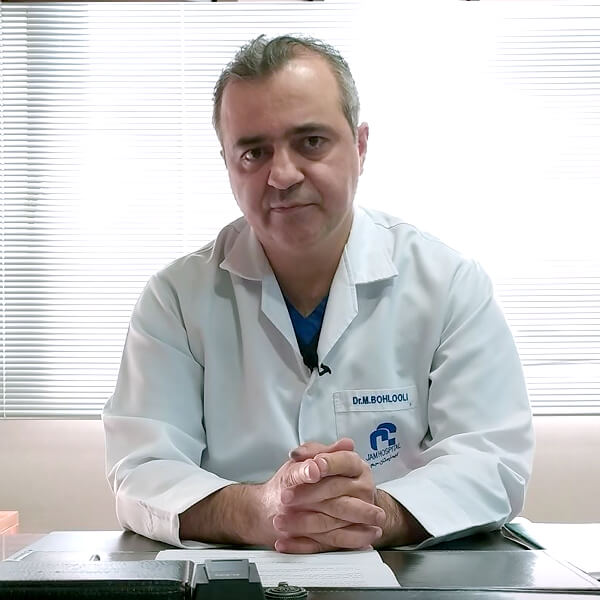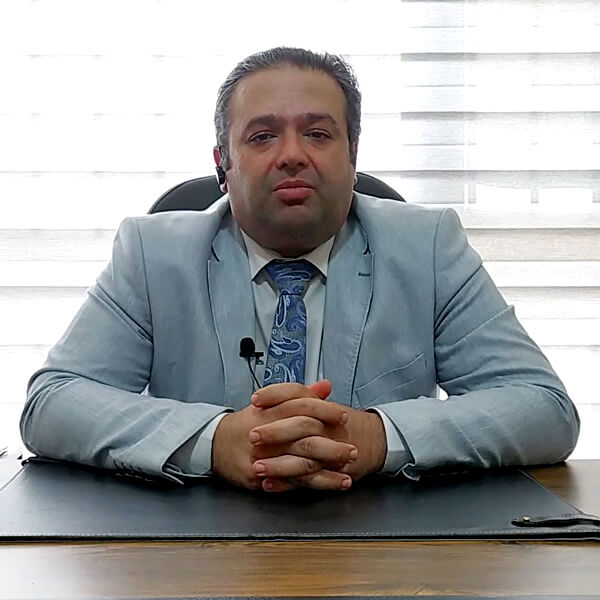Dr. Arash Jenabian
hematology and oncology specialist
In this video, Dr. Arash Jenabian hematology and oncology specialist, talks about World Cancer Day.
The text of Dr. Jenabian’s speech
In the name of God, Hello dear viewers and listeners. I am grateful to Noor Charity Association, whose work is to support cancer patients. And they do it in the best possible way on different levels. They were kind enough to consider me to talk to. I am Dr. Arash Janabian. Specialist in oncology from Paris Descartes University and member of Islamic Azad University faculty, director of blood and cancer department of this university, and member of Iran Blood and Cancer Society. On the occasion of World Cancer Day, they asked me to speak a few words to you, our respected audience.
World Cancer Day is on February 4th, which was decided in 2000. In 2000, a very large assembly in Paris, consisting of various scientific, cultural and international associations, such as the European Oncology Society, the American Oncology Society and the continental or national oncology societies of different countries who had something to say in this field, in addition to important international organizations such as the United Nations United, decided on this.
The primary goal was to remind the world the problem of cancer is a global problem, it is not limited to a specific place and this problem exists everywhere in the world. Its different types are being recognized. It has intensity and weakness in different places. In some places, the prevalence of a series of diseases is higher, and in some places, other diseases. which we refer to later. And sensitizing people, officials and decision makers of the health system in different countries and in international forums to the importance of this issue. In order to take measures for better, early and more accurate diagnosis. And as a result, better, more appropriate, less complicated and more effective occupational therapy.
Since 2000, this work is being done and various programs are implemented globally and in countries. And every year this day is accompanied by a slogan and a program. This slogan was changed every year, now it is changed every two or three years. The slogan for the current three years, from 2022 to 2024, for International Cancer Day is: “Close the care gap.” It means minimizing treatment differences. What comes from this message is justice in treatment and healthcare. Why should a patient in Paris or Chicago receive the best up-to-date treatments with the best facilities. But another patient in a different part of the world wouldn’t even get diagnosed? Or perhaps, would receive an unsuitable treatment? The goal is to remove the obstacles, which are mainly economic obstacles, in order to allow a large group of people to access the diagnostic and treatment tools that exist in the world.
I think that according to this current slogan, it is an important opportunity that considering the amount of knowledge of medical scientists in the field of oncology in our country, we will again bring ourselves closer to the world’s standards so that people can benefit from these facilities. In the treatment of a certain type of cancer, the large intestine for example, if the local type has progressed, which happens a lot, if the international guidelines are implemented well in the treatment, the 5-year survival rate of these patients can rise above 62-63%. That is, 62-63% of patients will survive in the next five years without disease recurrence if they are treated according to current science and guidelines. But if the treatment is done outside these guidelines, this number goes from 63% to 23%. That is, there is a 35% difference between standard treatment and non-standard treatment. This example illustrates this slogan. Therefore, efforts should be made so that all the people of the world can benefit from the best diagnostic and treatment tools to increase the survival of patients.
With the good progress that has been made in the science of oncology in recent years, in patients who have limited forms of the disease, that is, their disease is limited to the primary organ, the rate of definitive recovery has increased greatly. And in metastatic patients, that is, those whose tumor has spread from the primary organ to other places, the disease-free survival rate has increased significantly.
The reason for these events is the improvement of cancer treatment methods. I think the main reason is teamwork. Oncologists and those involved in cancer diagnosis and treatment learnt to work together. In a cancer treatment team, oncologist, pathologist, surgeon of that organ and cancer surgeon, radiation therapy specialist, social worker, psychologist, nutritionist must be present so that the treatment can be done better. And the result of these events and especially the very valuable research work in the last ten-twenty years has made the problem of cancer better understood. And we understand what happens when people get cancer better. When we understand this and know the events following this issue and become familiar with it, then we can do treatments that have an effect on that specific cancer without harming other parts of the patient.
This is the philosophy of new treatments such as targeted therapy or immunotherapy (treatments based on the patient’s immunity). If we want to deal with cancer better, it’s better to have a definition. What is cancer?
The fact is that even the people involved in the work do not agree on a specific definition. My definition of cancer, which I find to be a suitable definition for doctors and patient goes like this; First, note that cancer is not a disease. Cancer is hundreds, even thousands of different diseases. The mechanism of these diseases is different from one disease to another. We have several types of cells inside an organ. Each of these cells can be the source of a malignant disease. Which cell is the primary origin of the tumor and how the tumor forms, grows and metastasizes is different. Cancer is the abnormal growth and survival of cells in a part of the body. Cells multiply, they have a specific number in each organ, sometimes reaching millions. More importantly, each cell has a specific lifespan. We have cells in our body, such as white blood cells, which have a lifespan of a few hours. On the other hand, we have other cells in the same hematopoietic system that remain and live for years in certain organs, the lymphatic system, the brain and bones, and other places in the body. Naturally, the cancer that the cells of the first group get is different from the cancer that the cells of the second group get.
The characteristics of cancer cells are:
First, they have unlimited reproduction and growth. In general, the planning of cells and the environment around them and the nucleus inside them is such that the cell has a specific lifespan and has a specific reproduction. A cancer cell gets out of this rule of limited reproduction and has the ability to divide and multiply indefinitely. Many times, the cancer cell escapes from the programmed cell death that I described, which is called apoptosis. A cell that was supposed live for only a few hours, gets to live for year. It doesn’t die. This goes on for days and months. This causes accumulation of cells in one area and this problem justifies the following characteristics of cancer cells. One of these features is the ability to invade nearby tissues as well as the ability to migrate to distant tissues, which means metastasis. Cells go where they find a more suitable and new space for growth.
Another characteristic of cancer cells is autonomic sensitivity to growth factors. We have growth factors and hormones in all cellular environments. Some cells that become malignant are abnormally sensitive to these factors and react and grow and multiply abnormally. On the other hand, we also have factors that prevent this abnormal growth if needed, just like a handbrake. Cancer cells are excluded from this rule as well. This disorder helps them survive.
Another important characteristic of cancer cells is escaping from the patient’s own defense and immune system. During the day, hundreds and thousands of abnormal cells are made in our body. Our immune system identifies them, absorbs them and expels them. If evasion of the immune system occurs, this direct confrontation with the abnormal cell is lost and the cell remains. These events in a group of cells lead to the formation of cancer cells. And this way of growing out of order, irregular proliferation and long-term survival leads to tumor. A tumor that moves from the primary organ and metastasizes causes malignant cancer.
How is cancer diagnosed?
The basis of diagnosis of cancer and malignant cells is the study of cells. It means the work of pathology. Tissue sampling. Just finding a mass in a part of the body, either by the patient or by us doctors, is not necessarily malignant or cancer. Until we do a direct tissue sampling and remove that suspicious tissue completely and take it to pathology and examine it, it is not possible to say whether it is cancerous or not. Now, I want to mention two definitions that are usually questionable for you. Grade and stage.
The grade is the degree of cellular differentiation. Stage is the degree of progress of the disease. When talking about grade, this is a histological term. A pathology term. The higher the grade, the more abnormal the cells are from normal cells. more aggressive. The higher the grade, the more malignant the cell’s capabilities. So, it’s a histological term. Stage is the degree of progress of the disease. We have stage 1, 2, 3 and 4. Stage means how far the disease has progressed in the body.
Breast cancer is a very common tumor in women. If the breast tumor is only limited to the breast itself and its size is less than 2 cm, it is stage 1. If the size is a little bigger, about 2 to 5 cm, without involvement of surrounding tissues and lymph nodes, it becomes stage 2. If the lymph nodes and surrounding tissues are also involved, it is stage 3. It means that the disease is progressing and moving further and further away from its primary organ. Stage 4 is when you have metastasis. Both stage and grade play a role in the proper design and implementation of cancer treatment.
But what are the most common cancers in the world?
It is a frequently asked question. The prevalence of cancers in general in the world has its own differences based on the country or each region, which is largely influenced by the living environment of people or the genetic characteristics of people in that region.
The most common cancer in the world is still lung cancer. Lung cancer accounts for 11% of all cancers. In second place is breast cancer. Again 11%. After that, cancers of the lower digestive tract. Colorectal. 10%. In the fourth place is prostate cancer, which is specific to men and accounts for 7% of all cases. After that is stomach cancer, which is a very malignant cancer and accounts for 5-6% of all cancers. These statistics are GloboCan statistics. GloboCan takes and collects the confirmed statistics of each country.
But in Iran, the most common cancer is stomach cancer. 16% of cancers in our country are stomach cancer. In second place is breast cancer. 15%. Then, colorectal cancers. 12 to 13 percent. Then lung cancer in the fourth place and then prostate cancer. The epidemiological and demographic pattern of cancer in our country is different from the rest of the world. It is the same elsewhere. In Japan, stomach cancer is more common than other cancers. In some other places, with the measures they have taken, they have minimized lung cancer and reduced its prevalence. But these differences do exist.
But there is a catch. It seems that the incidence of new cases in the world is increasing. There are two reasons. In my opinion, first of all, screening and diagnosis are being done much better. It means that we are making early diagnosis more than before. Second, the world’s population is aging. With the advances made by other medical fields. Cardiology. Surgery field. Infectious threads. It has caused the life expectancy of the population to increase and cancer according to the definition of the disease of the elderly. And with age, these cellular changes become possible.
A simple example in our own country. The official statistics that we have, in the only available source, the incidence rate of new cancers in Iran in the year 1986 is said to be 18,300 cases. The same statistics in 2004, that is, in less than 20 years – which is an important time in terms of epidemiology and medicine – became 56,000 cases. 3 times more. Diagnostic methods have improved. But the increase in life expectancy and other factors also had an impact. Now we have to see how it will be 20 years after this date. Therefore, the statistics have an upward trend. This should make us doctors, secondly the people, and thirdly the decision makers of the health system to deal with the issue more seriously.
In the last two years, a phenomenon called Covid-19 has emerged. which was and is a new problem for mankind. I think this matter has an impact on oncology and cancer diagnosis. The reason is clear. All over the world, people are hesitant and worried about going to medical and treatment centers. As a result, medical visits for non-Covid reasons decreased to a certain extent. As a result, in these one or two years, some patients were visited in more advanced conditions. Or patients who were cured in the past. After contracting Covid, their disease relapsed. The existence of corona disease should not only reduce our sensitivity to cancer,
-I emphasize this because it is World Cancer Day. Rather, it should increase our sensitivity. For the two reasons I said. Let’s not forget that this issue is very serious in the world health system. And the possibility of recurrence and malignant forms of the disease should not be forgotten. Regarding the quality of diagnosis and treatment and the importance of teamwork, or multidisciplinary teamwork, All team members should not be from the same discipline. They must be from different disciplines.
Like I already mentioned. One thing that should be noted about cancer patients is that many of these patients, due to their age or immune system, have other issues besides malignant disease. Other issues of internal medicine. Associated medical issues. comorbidities. It is very important to pay attention to these. If a patient has stomach cancer and also has uncontrolled diabetes, their diabetes becomes much more important now that they have cancer. Because the process of treating cancer patients is naturally easier when the body is healthier. Treatment of a cancer patient, specialist of other organs of the patient are very important.
But how do we see the future of oncology? This is one of the frequently asked questions. Very positive! Since 2018, I have been working in this field outside and inside the country. The fact is that the leap we have had in the last 10 years in oncology, I dare say as an internal specialist, it has not happened in any other field of internal medicine. Diseases that used to kill people easily, now we can kill them. The methods have improved. We learned to use the available treatment tools better. The chemotherapy we are doing now is very different from the chemotherapy we used to do years ago. Medicines and treatment protocols have become less complicated and more effective. New therapeutic tools, targeted therapy that have been used for many years in various cancers such as lymphatic cancer, breast cancer, digestive tract cancer especially intestinal, administrative tract and kidney. Patients who did not live long in the past are now living for a long time with these treatments. Newer treatment tools. Immunotherapy. You must have heard of it. Immune-based therapy. The philosophy of this method is completely different from chemotherapy. In chemotherapy, the goal is to destroy the malignant cells. Even at the cost of destroying healthy cells. This is what happens in chemotherapy. But in immunotherapy, the goal is to use the person’s immune system from which the cancer cell escapes. Or the immune system itself, if it has a fundamental problem, we will fix it and the patient’s immune system will overcome the cancer. This method has found a significant place in many different cancers. In this field, our country is still a little behind and we should catch up to the world. The fact is that our country ranks first in the field of medicine in the region. So there’s room for immunotherapy tools to grow more in our country. or personalized treatments. Let me explain.
It often happens: two patients are both the same age and have the same disease. Two 60-year-old men, both have prostate cancer. Prostate that has metastasized and is stage 4. We treat both in the same way because the treatment guideline says so. One responds very well to treatment, the other does not respond at all. One faces many complications with the treatment method, the other one does not face any complications at all. Why? Because these two people are different from each other. Their immune systems are different. Even despite the similarity of the characteristics of their malignant cells, when we enter the cell and examine the cell’s molecule and genome, we see that the two diseases are completely different. Therefore, oncology medicine is going in the direction of treating person A and person B based on their needs and personal characteristics and their tumors. It is called personalized medicine. This is the future of oncology. All these factors, the fact that we now know the previous treatments much better, Real teamwork and new treatment tools and medications, immunotherapy, personalized medicine and targeted therapy, they all give us a lot of hope.
Apart from the aspects of drug-based and systemic cancer treatments, local treatments have also progressed a lot. Cancer surgery techniques have become far better and more accurate than in the past. Regarding long-term subspecialty courses for cancer of a certain organ, we can see the surgeons and specialists have become more precise. For cancer of a specific organ, patients spend long-term specialized courses with a specialist or surgeon, and with the knowledge of that doctor, they become a healthy person. The surgery performed by that doctor is definitely different from the surgeries performed in the past. or radiotherapy. Radiation therapy devices and techniques have advanced a lot. And all of these tools together create a better outcome for patients.
Another thing that has happened is the follow-up of cancer patien ts. We know that the follow-up of a cancer patient, even in the case of complete recovery, is lifelong. A patient should never forget their follow-ups. by the attending physician, oncologist, surgeon. All team members who had a role in diagnosis and treatment should be involved in patient follow-up. And most importantly, the patients themselves must be serious about regular and timely follow-up and check-ups. The series of these events has made the condition of both diagnosis, treatment and the future of patients to be much, much better than in the past.
Let’s not forget the special conditions of Covid. Just as it harms all people in society, the elderly, diabetics, people with underlying diseases, or even people who do not have any diseases. It also requires special attention in cancer patients. I emphasize that covid vaccination is mandatory for cancer patients. The fact that some people don’t believe in vaccination only makes them hurt themselves and their loved ones. Covid vaccination for cancer patients should be done with the most effective vaccines and on time. And fortunately, in our country, the first group to receive vaccinations were cancer patients. Because of their own follow-ups and the associations in which I myself was active, and we insisted that this work gets done and it should continue. In addition to the fact that today there’s Covid-19, another virus may appear tomorrow. This pandemic that happened made humanity more alert. People who have an underlying disease should pay special attention. Including the cancer that is active in the person now or the cancer that the person had in the past and has now recovered.
And the last word I would like to say, First of all, the development of any scientific or medical category needs funding. There’s a price to pay. It shouldn’t be how it is now. There are patients we visit who can’t afford treatment. This is where associations like Noor charity come in handy to support these patients. Since the patients can’t afford it, they need to get help. This assistance is not a one-time assistance. It is not a symbolic contribution. It is not enough in my opinion that we gather people together once in a while and give them a certificate of appreciation. This support must be continuous. It must be organized. Charities need to work together. People should not forget them. Whether those who use them and the good of charities have reached them, or those who contribute themselves. Doctors and scientists can help these associations in their own way. This too should be continuous. I wish health to all the dear ones who saw this talk. I hope that these talks were helpful on the occasion of World Cancer Day. At least it has increased alertness. Remember these issues.
In addition, it is very important to follow up healthy people in families with genetic background. If, for example, there is a high incidence of colon cancer in a family, the follow-up of both genetics and that related organ should be done by a specialist. Depending on the conditions of each community, if a certain disease is more prevalent in a certain area, the root cause must be found. And if the root of this problem can be solved, the method should be worked on, if not, better and more appropriate diagnostic procedures should be performed for the patients. I wish good health to those who worked in the cancer category in these two years and during the Corona era. oncology nurses, oncology specialists, our colleagues in radiotherapy, oncology specialists. The surgeons. Many doctors put themselves at risk. We put our head in the lion’s mouth every day during these two years. Many oncologists work at two or three centers. Most of them are university professors. It means they continued their academic and therapeutic activities together. We should really appreciate these people. Those who lost their lives due to Covid, Or those who lost a loved one to Covid, I offer my condolences to them again and we sympathize with them. These days shall pass and good days will come again. Cancer will decrease, if not, it will become like many other diseases, many useful treatments can still be done for it.
Thank you for your attention.




